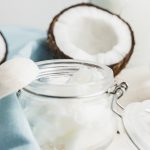Want to boost your gut microbiome? Discover 10 foods that promote microbial balance
 (NaturalHealth365) Believe it or not, the average person has trillions of bacteria living in their intestinal tract, accounting for an astonishing two to four pounds of total body weight. Although this may be an unsettling concept, the truth is: this community of microbes – also known as the gut microbiome – is not only beneficial but essential for health.
(NaturalHealth365) Believe it or not, the average person has trillions of bacteria living in their intestinal tract, accounting for an astonishing two to four pounds of total body weight. Although this may be an unsettling concept, the truth is: this community of microbes – also known as the gut microbiome – is not only beneficial but essential for health.
Recently, there has been a lot of “buzz” in scientific research concerning the far-reaching benefits of a diverse and balanced gut microbiome – and what can be done to promote it. A 2020 review of the literature published in Nutrition Reviews showcases the fact that the foods we eat have a profound impact on the composition and variety of microorganisms living in the digestive tract. So let’s see which choices offer the most “bang for the buck.”
Why is the gut microbiome so important?
Research has shown that beneficial gut bacteria help absorb nutrients, bolster immune system health, facilitate hormone function, promote digestion and even help prevent obesity. In addition, they can influence cognition and mood.
The trillions of bacteria in the gut microbiome are comprised of up to 400 different species. Problems arise when there is an imbalance between the “friendly” bacteria, such as Lactobacillus, and “bad” microorganisms, including E. coli, Bacteroides, Pseudomonas, and Candida yeast cells. Disturbed bacterial balance, also known as dysbiosis, sets the stage for ill effects and various diseases, including “leaky gut,” irritable bowel syndrome, chronic fatigue syndrome, Candida overgrowth, and autoimmune disorders.
Incredible! Gut microbiome health and nutrition are linked in MULTIPLE ways
The review, conducted jointly by researchers at George Washington University and the National Institute of Standards and Technology, evaluated the specific effects of nutrition and diet on the gut’s microbial composition. The researchers examined the role of micronutrients – which include vitamins and minerals – and macronutrients (larger components of food such as carbs, protein, and fiber). Intriguingly, they noted that while dietary fiber nourishes gut bacteria, excessive amounts of protein may create potentially harmful metabolites (byproducts) that can remain in the gut and increase the risk of health problems.
Study leader Leigh A. Frame, Ph.D. – director of Integrative Medicine at the George Washington School of Medicine and Health Science – stressed the importance of the research. “As we learn more about the gut microbiome and nutrition, we are learning how influential they are to each other …. and to the role, they both play in prevention and treatment of disease,” Dr. Frame noted.
THESE 5 foods are most valuable for maintaining good microbial balance
According to naturopathic physician Eric Bakker, N.D. – a leading expert in gut disorders – the best foods for the gut are those that promote good digestion, strengthen immune function, and are “probiotic” (meaning they encourage the growth of beneficial bacteria).
Dr. Bakker agrees with many other natural health experts that Jerusalem artichokes top the list at Number 1 due to their high levels of a beneficial fiber known as inulin (not to be confused with insulin). Inulin is prebiotic, meaning that it not only encourages beneficial bacteria but directly provides fuel for them. Although Jerusalem artichokes (also known as “sunchokes”) are not overwhelmingly popular in the United States, that may change as people begin to discover their health benefits and piquant flavor. These sweet, crunchy tubers can be roasted, added to a stir fry, or nibbled raw.
Right behind Jerusalem artichokes, at Number 2, are bananas, which are also rich in inulin. When you pair these foods with coconut milk or coconut oil, you’ll incorporate the Number 3 food on the list. Coconuts are high in caprylic acid, a beneficial medium-chain fatty acid that can help stop harmful bacteria and yeasts right in their tracks.
Grapefruit seed extract (GSE) earns its place at Number 4 on the list because it mercilessly targets “bad” bacteria while leaving “friendlies” unharmed. And Number 5, garlic – another prebiotic food – is renowned for its ability to deliver a “one-two punch” against dysbiosis, killing off harmful bacteria and yeasts while encouraging the growth of beneficial bacteria. Tip: if fresh garlic isn’t your “thing,” aged garlic extract is available as a supplement – and supplies the same benefits. You can also improve gut health with garlic’s milder-tasting “cousins,” such as onions, leeks, shallots, and chives.
Gut health benefits continue with 5 more superfoods
Butter and clarified butter (known as ghee) are high in butyric acid, healthy fat with anti-inflammatory properties. (Be sure to seek out organic butter from grass-fed cows). And cruciferous vegetables – including cabbage, kale, cauliflower, broccoli, and arugula – possess a secret weapon against dysbiosis called indole-3-carbinol. This beneficial prebiotic fiber excels at promoting the survival of Lactobacillus, an important “friendly” species of bacteria.
Beans, rich in fiber and nutrients, are known to strengthen the intestinal walls and work against “leaky gut,” a condition that can cause pathogens and undigested food particles to enter the bloodstream. Cultured and fermented foods, such as miso and yogurt with live active cultures, also have been awarded “superstar” status by natural health experts for their ability to keep the gut microbiome in balance. Finally, tart green Granny Smith apples encourage beneficial bacteria while also contributing energy-boosting malic acid and a healthy fiber known as pectin.
With so much riding on the health of the gut microbiome, it’s good to know that we can support it simply by making wise (organic) dietary choices. Your gut – along with your entire body – will thank you.
Sources for this article include:



